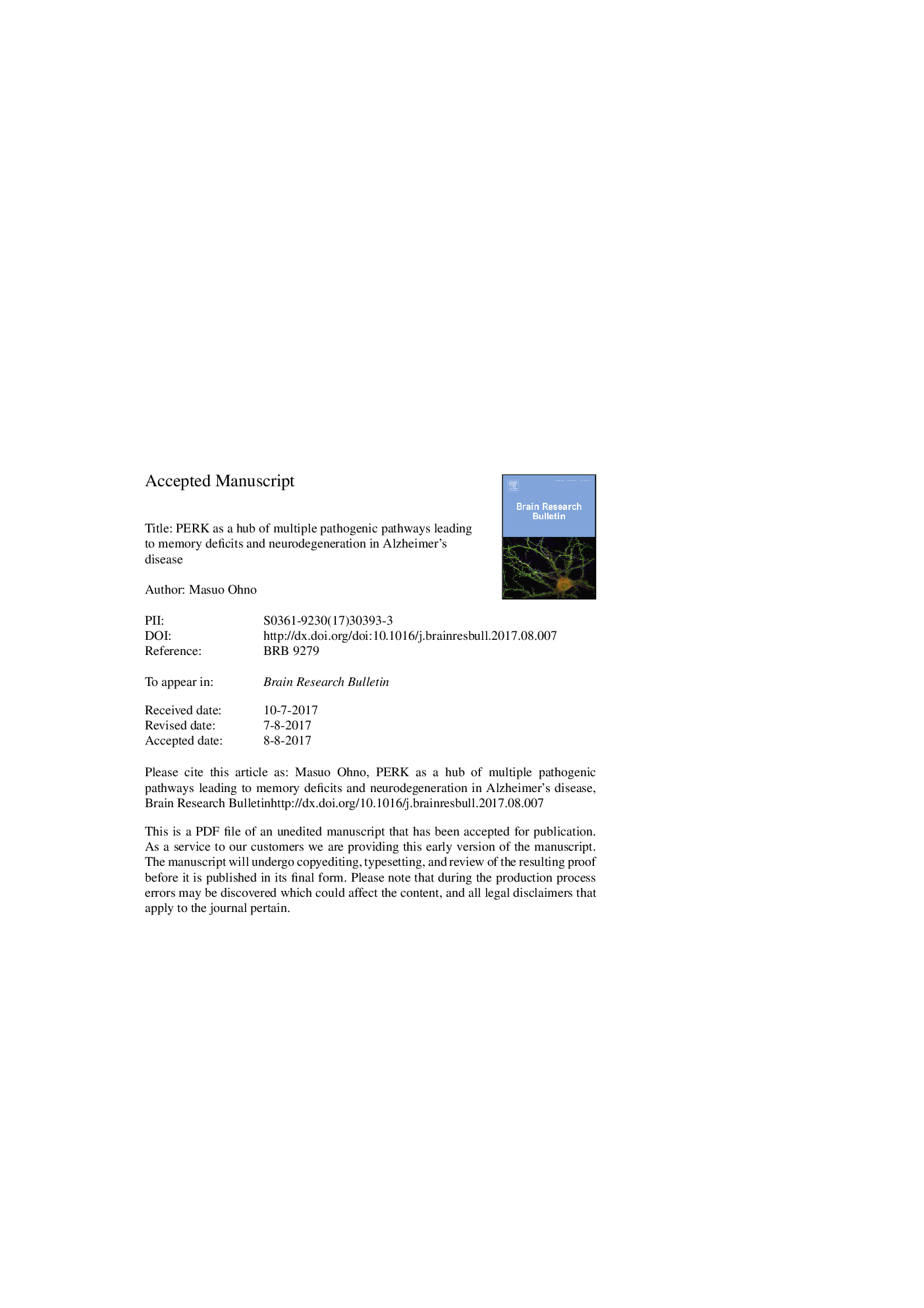| Article ID | Journal | Published Year | Pages | File Type |
|---|---|---|---|---|
| 8838824 | Brain Research Bulletin | 2018 | 24 Pages |
Abstract
Cell signaling in response to an array of diverse stress stimuli converges on the phosphorylation of eukaryotic initiation factor-2α (eIF2α). In the brain, eIF2α is a hub for controlling learning and memory function and for maintaining neuronal integrity in health and disease. Among four eIF2α kinases, PERK is emerging as a key regulator for memory impairments and neurodegeneration in Alzheimer's disease (AD). Genetic and pharmacological manipulations of PERK-eIF2α signaling have revealed that the overactivation of this pathway is not a mere consequence of the neurodegenerative process but play critical roles in AD pathogenesis and the occurrence of memory deficits. This review provides an overview of recent progress in animal model studies, which demonstrate that dysregulated PERK accounts for memory deficits and neurodegeneration not only as a detrimental mediator downstream of β-amyloidosis and tauopathy but also as an important determinant upstream of both pathogenic mechanisms in AD. A therapeutic perspective is also discussed, in which interventions targeting the PERK-eIF2α pathway are expected to provide multiple beneficial outcomes in AD, including enhanced mnemonic function, neuroprotection and disease modification.
Related Topics
Life Sciences
Neuroscience
Cellular and Molecular Neuroscience
Authors
Masuo Ohno,
